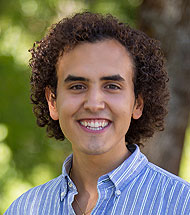University professors demand training didactics for quality non-classroom teaching teaching
A research of the University analyzes the problems of the teaching during confinement and proposes ten lessons for the next course.


University professors feel the need to receive didactictraining in order to provide a quality teaching in a non face-to-face environment. Although to a lesser extent Degree, they also consider it opportune to receive technicaltraining to optimize the use of technological platforms to support teaching. The solution is didactic, not technological. This is the main conclusion of a research conducted by the University of Navarra to learn about the impact of the covid-19 crisis on higher Education .
A total of 2,113 people, including teachers and students of the academic center, have participated in a survey to obtain information on the experience of these months, listen to the opinions of those mainly affected (teachers and students) and identify areas for improvement.
The study has been carried out by the Center for University Governance and Reputation, in coordination with the Vice Rectors' Offices for Alumni and Office of Academic Affairs and the high school of Science of the data and Artificial Intelligence of the University of Navarra. "In order for the coronavirus crisis to become a learning experience, it is necessary to gather the experiences and suggestions of professors and students," said Juan Manuel Mora, Vice President of Communication and director of the Center that conducted the study.
82.8% of the students were satisfied with the teachingAfter two months of teaching and an additional month of exams, the balance of the professors and students of the University of Navarra coincides and is moderately positive. A total of 82.8% of students say they are satisfied with the non-classroom teaching received, while this same evaluation stands at 89.3% in the case of professors.
Teachers attach great importance to having adequate resources (computer, webcam, headphones, microphones...) at their work sites, with a grade average of 4.02 out of 5. The electronic adaptation of teaching materials (subject manuals, notes...) is also considered relevant, with a grade average of 3.61 out of 5.
The faculty values positively a greater coordination among the professors of the center and appreciates the possibility of sharing experiences among teachers. They suggest promoting personalized teaching and counseling tools with the student. In the circumstances of confinement, the professors are particularly grateful for the support of the services responsible for professor quality and technology.
The study identifies the most frequent problems encountered by teachers. They highlight greater dedication and difficulties for family reconciliation; complexity of coordination with other teachers in the planning of work, insufficient technical and didactic resources, problems in adapting staff to a non-classroom environment and obstacles to research.
According to the research, students value positively above all the availability of the professors to attend to their questions and doubts, as well as the quick and clear information from the University or School regarding the teaching. "We have learned that students need to feel that the professor is close and attentive to their personal and learning difficulties. The professor's commitment generates the confidence of student", says Tomás Gómez-Acebo, Vice President de Alumnos.
It has also been positive for them to maintain the calendar of classes and exams and the end of the course. In addition, they value favorably the quality of the platforms for non face-to-face classes and exams, as well as the speed in solving technical problems.
The biggest challenge for the students has been taking the exams, which they say have required more time to complete and better conditions. There has also been a perceived increase in the load of work during confinement, a feeling that is also perceived by the teacher.
"This crisis has reaffirmed to us that it is important for the University to always accompany students in the learning process and involve them with their opinions in improving the university experience," commented Rafael María Pérez Araluce, the University's student delegate.
Among other issues, students suggest shorter and more dynamic classes to facilitate attention, encourage the participation of student and that they be recorded to facilitate study.
training course for 730 teachersThe research has helped the University of Navarra to organize a training course on new teaching methodologies, in which more than 730 professors and support professionals from teaching, almost the entire teaching staff, will participate for three weeks.
The course will be available as the University's owndegree scroll , open and free of charge, for any Spanish-speaking university professor. "We think that this course can be an effective financial aid at this time when many academics demand training resources," said Pablo Sanchez-Ostiz, Vice President of Office of Academic Affairs of the University of Navarra.
